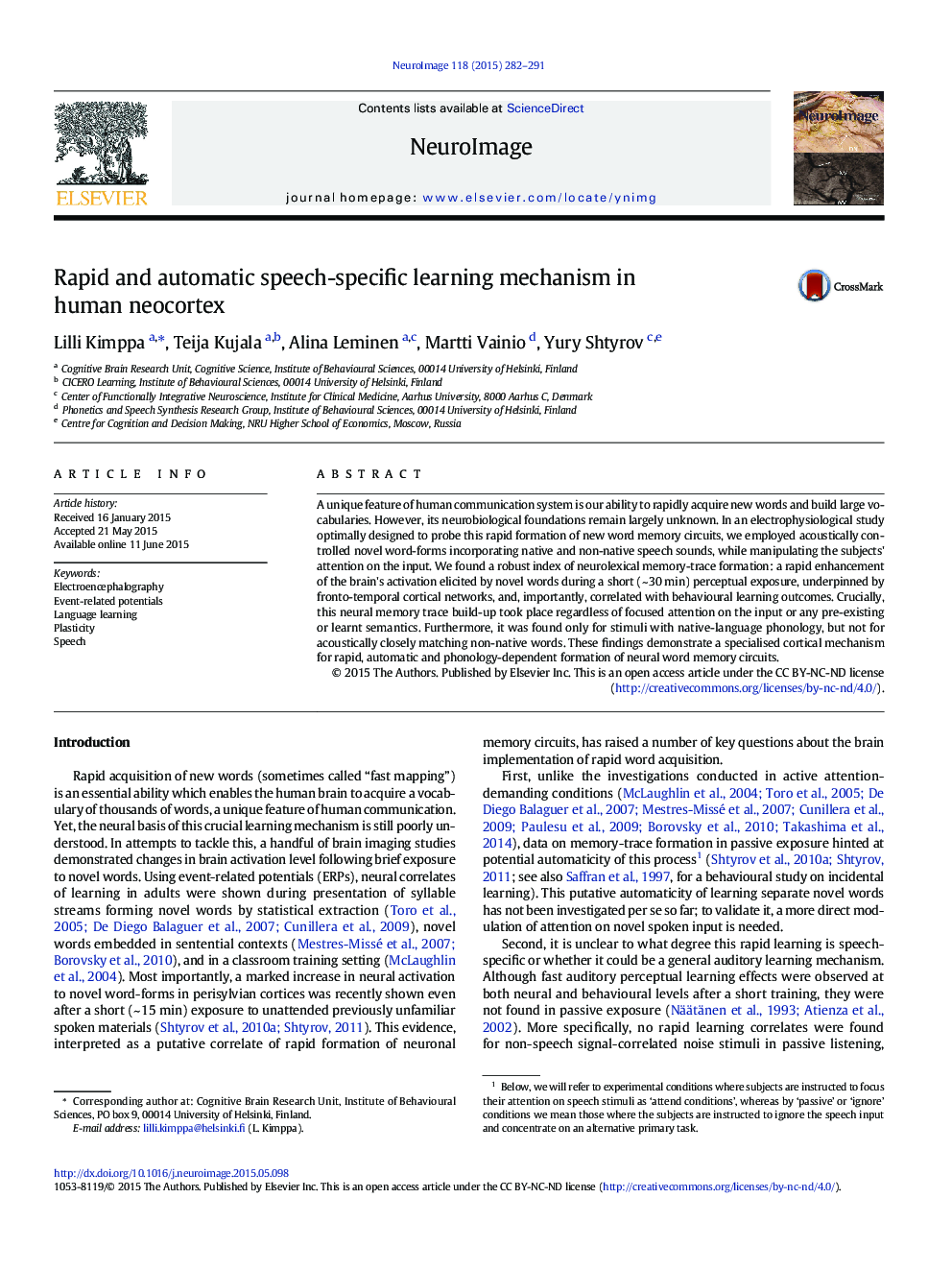| Article ID | Journal | Published Year | Pages | File Type |
|---|---|---|---|---|
| 6025124 | NeuroImage | 2015 | 10 Pages |
Abstract
A unique feature of human communication system is our ability to rapidly acquire new words and build large vocabularies. However, its neurobiological foundations remain largely unknown. In an electrophysiological study optimally designed to probe this rapid formation of new word memory circuits, we employed acoustically controlled novel word-forms incorporating native and non-native speech sounds, while manipulating the subjects' attention on the input. We found a robust index of neurolexical memory-trace formation: a rapid enhancement of the brain's activation elicited by novel words during a short (~Â 30Â min) perceptual exposure, underpinned by fronto-temporal cortical networks, and, importantly, correlated with behavioural learning outcomes. Crucially, this neural memory trace build-up took place regardless of focused attention on the input or any pre-existing or learnt semantics. Furthermore, it was found only for stimuli with native-language phonology, but not for acoustically closely matching non-native words. These findings demonstrate a specialised cortical mechanism for rapid, automatic and phonology-dependent formation of neural word memory circuits.
Related Topics
Life Sciences
Neuroscience
Cognitive Neuroscience
Authors
Lilli Kimppa, Teija Kujala, Alina Leminen, Martti Vainio, Yury Shtyrov,
